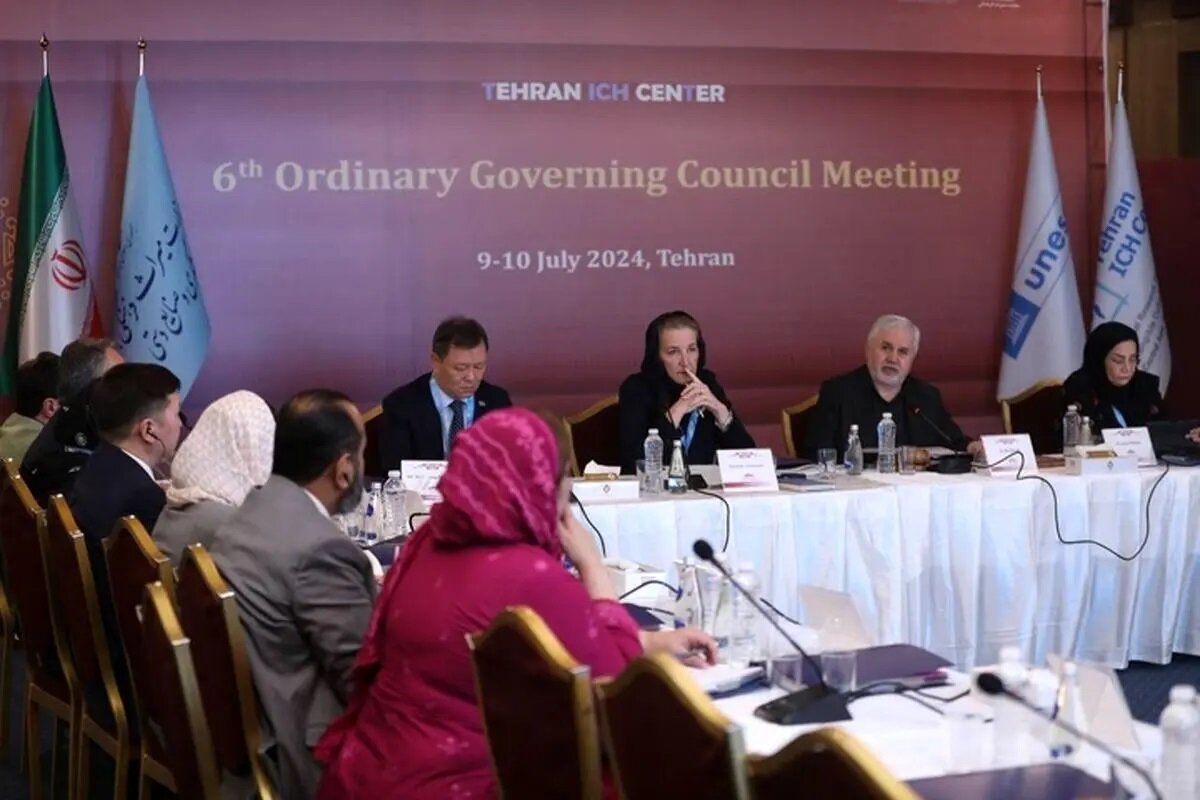Intangible cultural heritage ever-living soul of nations, deputy minister says

TEHRAN – Iran’s deputy tourism minister Ali Darabi has said intangible cultural heritage is the ever-living soul of various cultures worldwide.
“It is one of the pillars for achieving sustainable progress in our identity-rich communities today,” said Darabi who doubles as the chairman of the governing council of the Regional Research Center for the Safeguarding of Intangible Cultural Heritage in Western and Central Asia.
Darabi made these remarks at the opening of the sixth regular meeting of the Governing Council of the Regional Research Center for the Safeguarding of Intangible Cultural Heritage in Western and Central Asia.
Rosanna Giannandre, Officer-in-Charge of UNESCO Cluster office in Tehran, along with representatives and experts from the member states attended the event, which was held on Tuesday at Laleh Hotel in Tehran.
“Today we are honored to hold the sixth meeting of the Governing Council of the Intangible Heritage Center in Tehran following the implementation of our commitments in the fifth council and in the third and fourth executive boards, with the presence of you esteemed country representatives and distinguished experts in this center,” Darabi said.
He added: Intangible cultural heritage is the ever-living soul of the cultures of nations, which is one of the pillars for achieving sustainable progress in our identity-rich communities today because this aspect of heritage affirms the wisdom and thought of humanity from the distant past of global history.
The five manifestations of intangible heritage are indeed a treasure trove of the most encompassing cultural and identity expressions of nations that cannot be conveyed in this limited time from the lived experiences of thousands of years of human interaction with planet Earth in its resilience and flexibility in transferring it to the present generation, the official explained.
Referring to the holding of this meeting simultaneously with the (holy) month of Muharram and the commemoration of the martyrdom of Imam Hussein (AS) and his loyal companions, Darabi said: “We Iranians wear black clothes and hold mourning ceremonies to revisit the ideals and messages of the everlasting movement of Karbala and to mourn Imam Hussein (peace be upon him) and his companions, which is considered a symbol of intangible heritage.”
He continued: “In this meeting, which has gathered to effectively and efficiently safeguard based on the legal documents of the 2003 convention, we will review the performance of the Intangible Heritage Center in Tehran, which has been realized under the supervision of the executive board and in cooperation with member countries, and we will present new programs that are needed by the countries of the Western and Central Asian region today.”
Darabi concluded his remarks by expressing hope that the outcome of this meeting, like previous ones, will bring useful solutions and effective achievements for the Regional Research Center for the Safeguarding of Intangible Cultural Heritage in Western and Central Asia in line with existing regulations.
AM
Leave a Comment